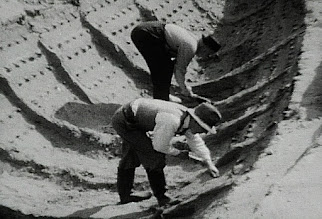A Brief History Of The Vikings - Jonathan Clements
Review By Tom
Rating: 9/10
This was my first introduction to the A Brief History Of... series and I couldn't have chosen a better book to start on. Whilst it did require some prior knowledge to fully understand what Jonathan Clements was discussing, the book as a whole was throughly absorbing, despite not actually answering the question displayed on the cover explicitly. I found Clements's research to be thorough and insightful, he did the best he could to deliver as complete a picture as possible of these Early Medieval travellers, settlers and soldiers.
As many of you know the Vikings, their beliefs and their mythology have soared into popular consciousness and culture over the last few years, with a knowledge hungry and captive audience waiting keenly to receive any new morsels of evidence that can tell us more. Myself being one of them, eagerly seeking to find out as much as I can possibly now about them. What I enjoyed about the book is that it took me out of the realm of Viking media, challenging a few of my previous preconceptions, for example, I never even thought about a pre-established trade link between Scandinavia and the British Isles pre-793AD until I read this book. Whilst these seafarers came from out of the mist, their impact between 793-1066 (some can argue that the last real Viking battle was in 1263 at Largs, Scotland, but by then Scandinavia had been fully converted to Christianity, so it's not Viking in it's traditional form.) is truly remarkable with all things considered.
What I found most fascinating is how the vikings traversed Europes rivers, eventually giving rise to the Rus (Russians in the modern day) and the journeys beyond Greenland to North America. Clements goes into great detail about these voyages, interpreting the sagas and archaeological evidence to demonstrate how these voyages may have gone, just shy of 500 years before Christopher Columbus. This insatiable curiosity of the Vikings to expand their knowledge and go through significant hardship to do it is something to be admired in this case. Clements also enlightens the reader on the politics, land disputes and reigns of the Scandinavians during this age, and even though Christianity's influence started to engulf the northern region of Europe, there was still a very visceral warrior culture and societal expectation boiling underneath. For a book of 273 pages, there is so much information crammed into it that my words could not do it justice.
The only reason why this is a 9/10 is because Clements presents some bias in the book. Whilst I am also a keen student of Anglo-Saxon history, Clements occasionally paints them as the "good" guys, but as we all know with Germanic and British cultures is that they were all as violent and brutal as each other, some just had better ways of doing it. The main one that sticks out is Alfred The Great's victory at Ethandun (Edington, Wiltshire), where although it was a significant English victory, I feel that Clements put the Saxons on a pedestal, in a book about Vikings...
With all things considered, I believe that this is a great introduction to and overview of the Viking age. Clements covers everything from Newfoundland to Novogorod with everything in between, with thorough research and cross examination of the sources, he presents a clear as possible image of this warrior race. Whilst the Early Medieval age still has a great many mysteries for us, what is clear is that the warriors from the North were here and they were here to stay, and their impact has resonated through the annals of time so they are just as relevant now as they were then.






Comments
Post a Comment